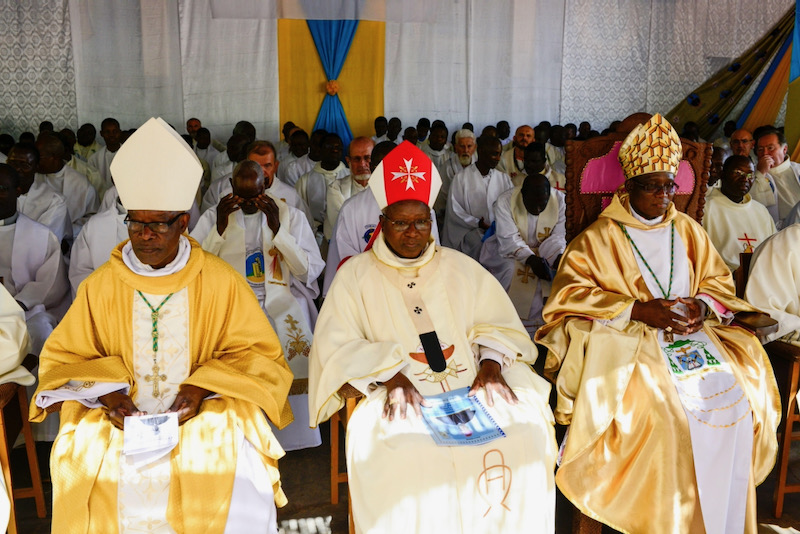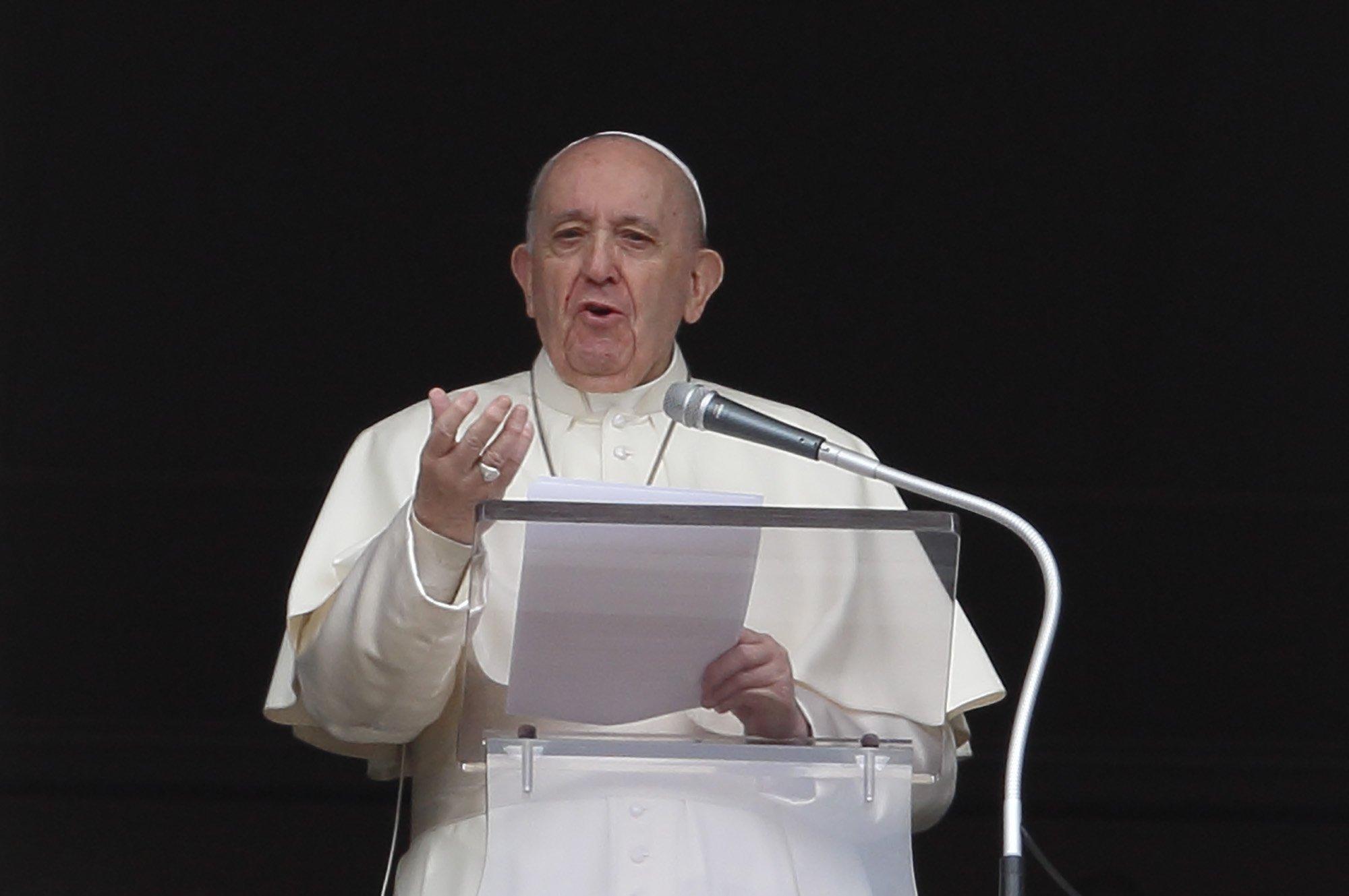Pope Francis has voiced concern over Russia’s military mobilisation near the border with Ukraine and called for efforts to ease tensions between the two countries.
In remarks at the Angelus on Sunday, Francis said he observed the military build-up in western Russia with “great apprehension”.
“Please,” he said, “I strongly hope that an increase of tensions is avoided, and that on the contrary, gestures are made capable of promoting reciprocal trust and favouring the reconciliation and peace which are so necessary and so desired.
“Take to heart the grave humanitarian situation facing the population, to whom I express my closeness and for whom I invite prayers.”
The Russian military build-up on Ukraine’s eastern border has fuelled new fears of a full-scale war. “It isn't easy for us in Ukraine – we are living in a time of great fear”, said Archbishop Svetoslav Shevchuk of Kyiv-Halych, head of Ukraine's Greek Catholic Church. “But we know the whole world community will support us - although Ukraine is bleeding from a pandemic, it will survive if God strengthens us.”
The Church leader delivered the message during the installation of a new Ukrainian Catholic exarch for Germany and Scandinavia, as Russia was accused of amassing an 80,000-strong invasion force, prompting warnings from Nato and Western governments.
Meanwhile, Ukraine’s independent Orthodox church also condemned “intimidation and pressure” by the Kremlin, and urged Russian service personnel and supporters of President Vladimir Putin to question what was happening.
“Do not participate in the crimes of your superiors, but pay attention to the words of Scripture - this also applies to those in Ukraine who await the arrival of Putin, on a path of betrayal and servitude”, the Church's governing Holy Synod said in a separate statement on Monday.
“The Ukrainian people wish to live in peace and understanding with everyone, especially our historical neighbours. But we will not surrender to the imperial yoke from which the Ukrainian people freed themselves three decades ago.”
Russia began deploying land and airborne divisions in late March, triggering counter-preparations in eastern Ukraine, where a war with Russian-backed separatists has left more than 13,000 fighters and civilians dead since April 2014.
Speaking last week, Russia's Defence Minister, Sergei Shoigu, said the build-up formed part of “readiness drills”, and had been launched in response to threats from Nato and the United States.
However, the deployments, the largest since 2014, were branded “unjustified, unexplained and deeply concerning” by Nato’s secretary-general, Jens Stoltenberg, while the White House said US President Joe Biden had called on President Vladimir Putin to “de-escalate tensions” in a telephone conversation.
In an appeal last week, the All-Ukrainian Council of Churches and Religious Organisations, grouping 16 Catholic, Orthodox and Protestant denominations, as well as Jewish and Muslim unions, urged a return to ceasefire agreements, adding that a new upsurge in firing and shelling had caused “deep grief and human suffering” in the separatist-occupied Donetsk and Luhansk regions, at a time when Ukrainians had looked to the 2 May Orthodox Easter as “an opportunity for inner renewal and spiritual consolation.
“We appeal to representatives of international institutions and the diplomatic corps to show unwavering firmness and commitment to resuming the process towards a diplomatic settlement of the military conflict, and towards a just peace throughout our country within its internationally recognised borders,” the council said.
“We ask you to show wisdom and resolution, so that solemn Easter songs, rather than gunshots, will echo over our homeland at this time, and sincere Easter greetings be heard as the weapons are silenced.”
The military build-up coincides with continuing Russian hostility to the independent Orthodox church, which broke with the Moscow Patriarchate two years ago, and has intensified misgivings that the upcoming Easter and 9 May Victory Day in Russia could provide an occasion for an attack on Ukraine.
Meanwhile, the Russian Orthodox church's foreign relations director, Metropolitan Hilarion Alfeyev, told the Rossiya-24 TV station more than a million people had signed a petition to the Ukrainian president, Volodymyr Zelensky, against the “persecution” of Moscow-linked Orthodox Christians, and said he was confident Pope Francis would not accept an invitation to visit Ukraine.
However, the 42-year-old primate of the new Ukrainian Orthodox church insisted his country was “defending its land and values” after eight years of separatist-fuelled conflict: “There's no doubt we will defeat this invasion as well”, Metropolitan Epiphanius Dumenko said in a national message last weekend. “The aggressor neighbour is well aware that Ukrainians have shown a strength of spirit and unity throughout this time that few expected.... So once again the Russian authorities are spreading the fear virus in panic, rattling their weapons and increasing psychological pressure”.
The Greek Catholic archbishop of Ivano-Frankovsk, Volodymyr Vityshyn, told media representatives his Church was “most concerned with averting the greatest calamity of war”, but would “always be with her people as they seek independence”.



 Loading ...
Loading ...